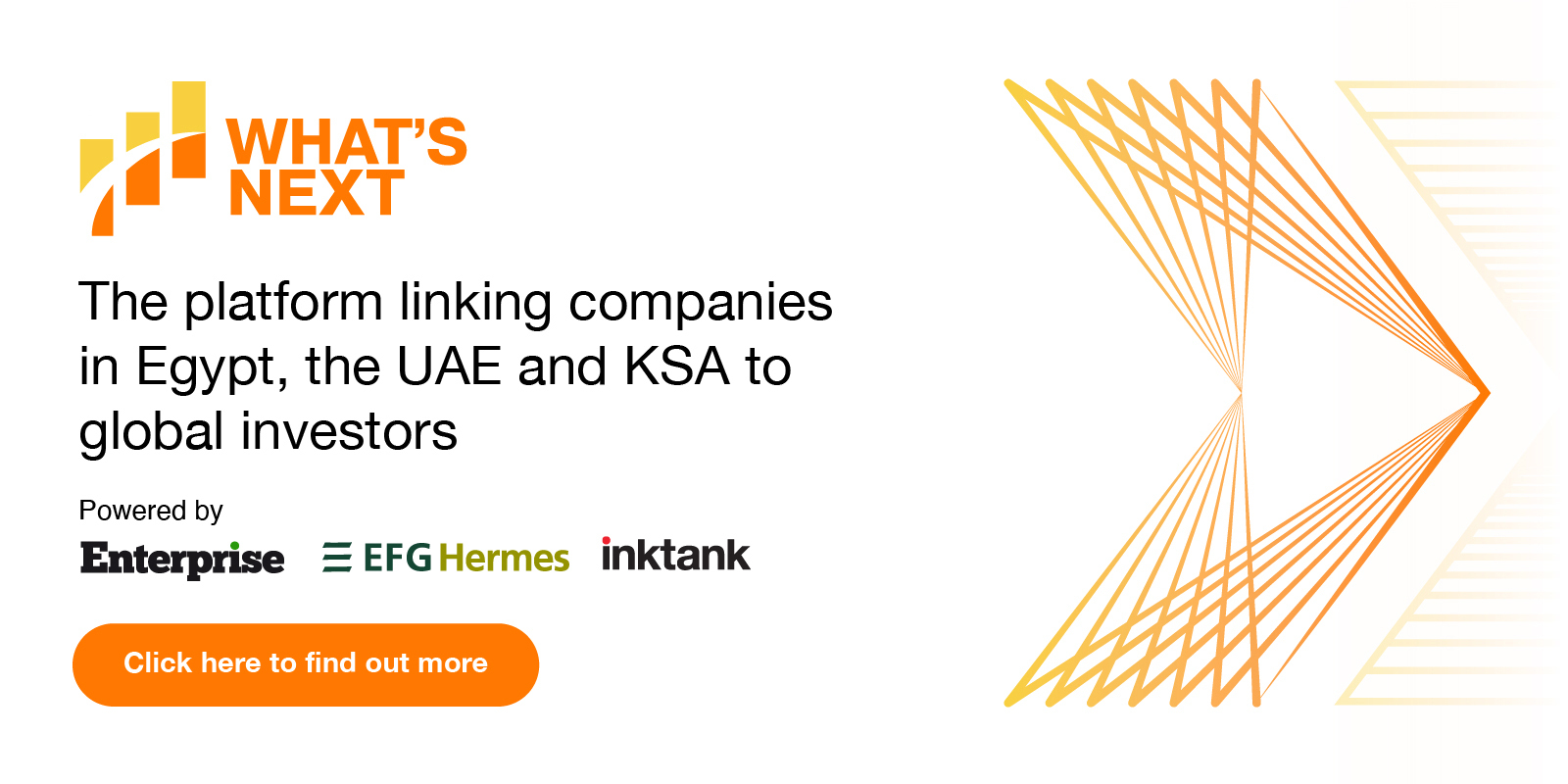- Russia oil ban fears spark more commodities chaos. (What We’re Tracking Today)
- Ukraine crisis forces Egypt to reassess fiscal targets. (Economy)
- US lawmakers to vote on Russia oil ban; Moscow threatens to shutter key gas pipeline to Europe. (War Watch)
- Unsubsidized bread in Egypt is getting pricier as Russia’s war roils the wheat markets. (Commodities)
- Qatari dairy firm Baladna acquires 5% of Juhayna + Compass ups stake in Rameda. (M&A Watch)
- Logistics startup Naqla raises USD 10.5 mn in pre-series A funding. (Startup Watch)
- Housing and Development Bank, Palm Hills report rise in net income. (Earnings Watch)
- EBRD to double down on support for SCZone digitization. (Also on our Radar)
- The regs are out for the legislation that is supposed to solve Egypt’s growing waste problem. (Going Green)
- Upcoming SPAC listings are on life support. (Planet Finance)

Tuesday, 8 March 2022
AM — The EGX30 is in correction territory as chaos sweeps the global commodities market
TL;DR
WHAT WE’RE TRACKING TODAY
Good morning, friends and welcome to another really busy news day. Before we get this show on the road, a quick warning from your friendly neighborhood weather service:
PSA #1- Close your windows — it’s going to be another dusty day. The Egyptian Meteorological Authority is predicting another sandstorm today across several cities including Cairo — and rain in other parts, including Alexandria. The mercury will reach a high of 25°C in Cairo today, with an overnight low of 14°C. Our favourite weather app doesn’t see today’s storm, but is claiming we could face winds and blowing sand on Thursday. Either way, be prepared.
THE BIG STORY in financial markets here and abroad- Stocks are now well into correction territory, meaning benchmark indexes are now down more than 10% from a recent high.
The EGX 30 slipped into correction yesterday after turmoil in global energy markets caused the benchmark index to hit its lowest level since early October. Shares slid 3.6% during trading amid upheaval in the energy and other commodities markets, prompted by fears that the US and Europe could move to blockade Russian oil and gas exports. The index is now down 10.4% year-to-date, putting it in correction territory for the second time in less than a year.
US stocks had their worst day in 17 months yesterday in response to the turmoil in the commodities markets. The S&P 500 re-entered correction territory falling almost 3% (its sharpest drop since May 2020), while the Nasdaq Composite is in a bear market, now down 18% YTD after sliding 3.7% during yesterday’s session.
Germany’s DAX and the pan-European Euro Stoxx 50 became bear markets earlier in the day in Europe.
Today isn’t looking much better: Major Asian benchmarks including the Nikkei, Shanghai, ASX 200, and KOSPI are all in the red this morning, with the Hang Seng being the only one bucking the trend. Futures suggest it will be red as far as the eye can see in Europe at the opening bell. Shares in Toronto will face selling pressure, while Wall Street could yet open in the green.
WHAT’S HAPPENING TODAY-
It’s gadget day for the Apple faithful as the tech giant holds its traditional spring event. Pundits expect a new iPad Air, an updated entry-level iPhone SE, a Mac of some form and — possibly, for the first time in years — a standalone display. The event starts at 8pm CLT and you can tune in here on Apple’s website or here on its Youtube page.
Look out, semsars: The final vote in the House of Representatives on amendments to the law regulating commercial and real estate brokerage will be held in today’s plenary session. After receiving initial approval on Sunday, a further amendment to the bill outlining penalties was given a preliminary nod by lawmakers yesterday. Under the amendment, brokers could face up to two years in prison and fines ranging between EGP 50k and EGP 1 mn if they break the law, according to Ahram Online.
About the bill: The legislation aims to bring real estate brokers into the formal economy and crack down on what policymakers say is illegal activity in the sector. It would set up an electronic registry for licensed brokers, set rules for their activities, and regulate the fees they charge.
SMART POLICY #1- Bank accounts for all. Egyptians can open bank accounts without charge and with no minimum deposit starting today through the end of March as part of the Central Bank of Egypt’s financial inclusion strategy, Al Mal reported yesterday. Banks will also provide an additional number of services at no cost over the next three weeks in an effort to attract more of the unbanked into the financial system.
SMART POLICY #2- Manufacturers will reportedly be required to include expiration dates on product labels starting May, according to new rules issued by the Consumer Protection Agency.
|
MARKET WATCH- The commodities crunch is accelerating across the globe: The implications of trying to shut out the world’s second-largest commodity producer from the global economy are becoming clearer with each passing day. It was another day of chaos in commodities markets yesterday with everything from energy to metals and wheat seeing historic price moves as investors reckoned with the fallout from the conflict in Ukraine and the attempts by the West to isolate Russia’s economy. Here’s a snapshot:
- Brent futures rose as much as 18% to highs not seen since 2008 on concerns that the US and Europe will ban imports of Russian oil and gas. After surging to almost USD 140 a barrel in early trading, the oil benchmark pared gains to close at USD 124.40 — the biggest daily swing in history.
- US wheat futures reached record highs yesterday, climbing 7% to USD 12.94 a bushel. Chicago wheat has now risen 52% in the past two weeks.
- Natural gas prices in Europe reached dizzying new heights: The benchmark Dutch TTF contract rose as much as 79% yesterday to the equivalent of more than a USD 600 barrel of oil.
- Nickel rose an incredible 90% in a single day to reach a new record high, in what Bloomberg described as “one of the most extreme price moves ever seen on the London Metal Exchange.” Russia is one of the world’s biggest suppliers of the metal.
The bond market is beginning to hint at recession: The spread between 2-year and 10-year US treasuries narrowed below 20 bps yesterday, an indication of growing concerns among investors that the US economy could fall into recession. Inverted yield curves, which occur when short-term bonds are viewed as riskier than long-term debt, have historically been a reliable forecaster of recessions.
Unfortunately for us, saner heads do not seem to be prevailing in Washington or Moscow, meaning that the situation is likely to get worse before it gets better. We have more on this in this morning’s War Watch, below.
FROM THE DEPT. OF “IS THIS WHY HEDGIES UNDERPERFORM?”- Bill Ackman thinks that World War III has already begun and the rest of us are just slow on the uptake. He also “compared the use of Russian rockets against Ukrainian citizens to Adolf Hitler’s gas chambers,” Business Insider notes. The Pershing Square boss said on Twitter he feels today as he did in January 2020, when he was worried that covid-19 would become a pandemic.
MEANWHILE- Keeping track of the covid toll: More than 6 mn people around the world have now died as a result of covid-19, according to data tracked by Johns Hopkins University.
CIRCLE YOUR CALENDAR-
US Deputy Secretary of State Wendy Sherman will be in town for two days this week starting Thursday. Sherman will meet with Foreign Minister Sameh Shoukry and “other senior officials,” including National Council for Human Rights chief Moushira Khattab.
Contemporary art and culture center Darb1718 is hosting its 3031 Art Festival until next Saturday, 12 March on its premises in Fustat, Old Cairo.
Other news triggers to keep your eye on over the next few weeks:
- Inflation: Inflation figures for February will be released on Thursday, 10 March.
- Interest rates: The Central Bank of Egypt will hold its next monetary policy meeting on Thursday, 24 March.
The Ahlan Ramadan supermarket expo will take place from 24 March to 1 April at the Cairo International Convention Center.
Check out our full calendar on the web for a comprehensive listing of upcoming news events, national holidays and news triggers.
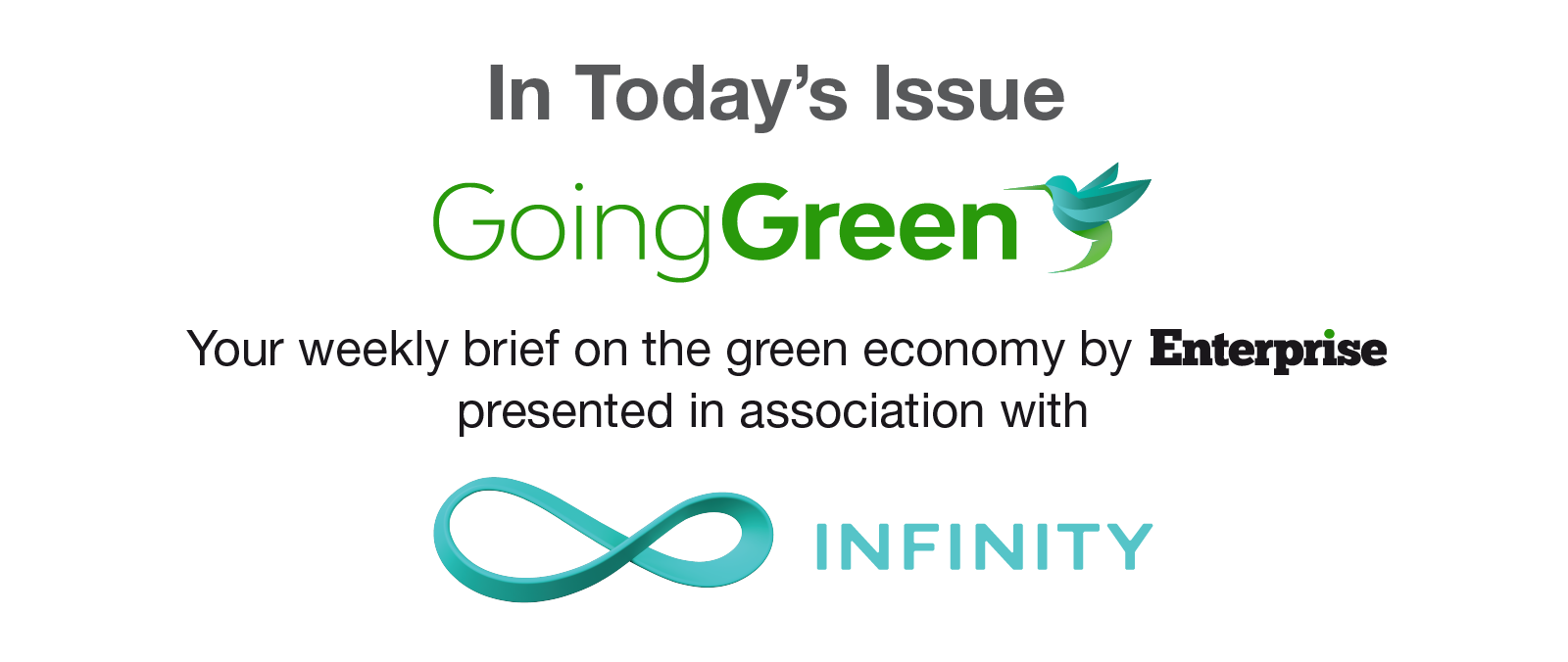
*** It’s Going Green day — your weekly briefing of all things green in Egypt: Enterprise’s green economy vertical focuses each Tuesday on the business of renewable energy and sustainable practices in Egypt, everything from solar and wind energy through to water, waste management, sustainable building practices and how you can make your business greener, whatever the sector.
In today’s issue: The executive regulations for the Waste Management Act are finally out. In this week’s Going Green, we parse through the regs to find out how the government is planning to address the country’s serious waste problem.
Experience luxury in every thoughtful detail where prestige hospitality is rediscovered with genuine warmth and passion. Awaken forgotten desires and build unforgettable memories to fuel a lifetime of inspiration. Spend your winter break at Somabay with special rates and choose among five different hotels at one destination. Visit: www.Somabay.com/hotels/
ECONOMY
Egypt reassess fiscal targets in light of war in Ukraine
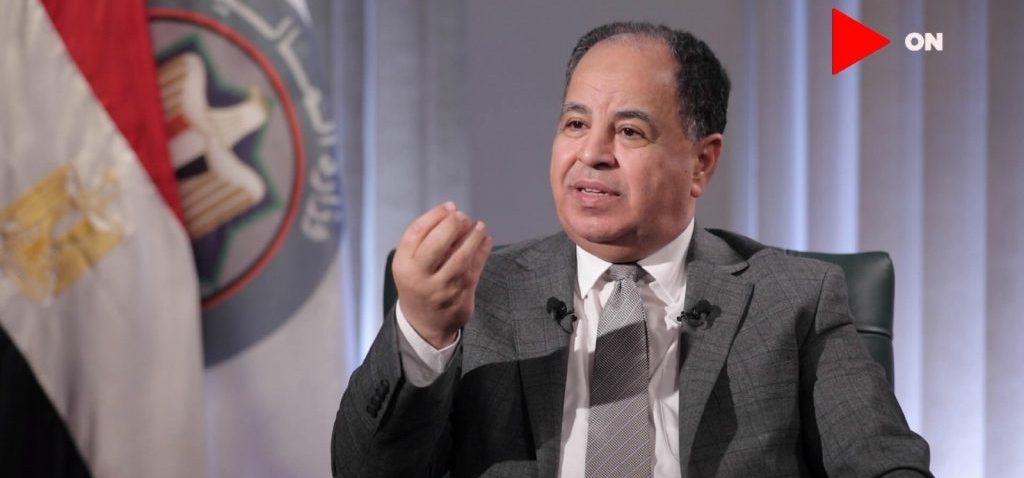
The government will likely have to revisit its fiscal targets for FY2022-2023 in light of the war in Ukraine and its implications on the global economy, Finance Minister Mohamed Maait said in a presser yesterday. The Finance Ministry had finished the draft 2022-2023 budget earlier this year but will now need to revise it to account for the new supply disruptions, rising commodity prices, and the drop in tourism from Russia and Ukraine, Maait said. “The war has mixed everything up,” he said. “Global markets have been hit by uncertainty because no one knows how long this will last."
Pre-Ukraine targets: Initial figures released by the ministry in January forecast 5.7% economic growth during FY 2022-2023 and saw the budget deficit narrowing to 6.1%. Debt was expected to decline to less than 90% of GDP.
We could miss our deficit target this year: The ministry set an “optimistic” budget deficit target of 6.7% for 2021-2022 but now has to reckon with a higher import bill, Maait said. “We will do our best to stay within the range of 6.7%, but I can’t give exact numbers due to the uncertainty and volatility of the situation,” he said.
Otherwise, he was tightlipped on how the conflict may affect next year’s budget: It was unclear whether the government is planning to make adjustments to spending or to what extent it is reevaluating its fiscal targets in light of the escalating global headwinds.
We’ll find out on 31 March when the updated draft budget is presented to the House of Representatives for discussion, according to the minister.
A REMINDER- Maait, Oil Minister Tarek El Molla and Supply Minister Ali El Moselhy have been leading on cabinet’s effort to keep the public abreast of the impact here of war in Ukraine. Not terribly long ago, our response would have been to bury our head in the sand. Cabinet deserves credit for being up-front and forthright about how they’re handling a crisis they neither created nor control.
WAR WATCH
US lawmakers to vote on Russia oil ban + Moscow threatens to shutter key gas pipeline to Europe
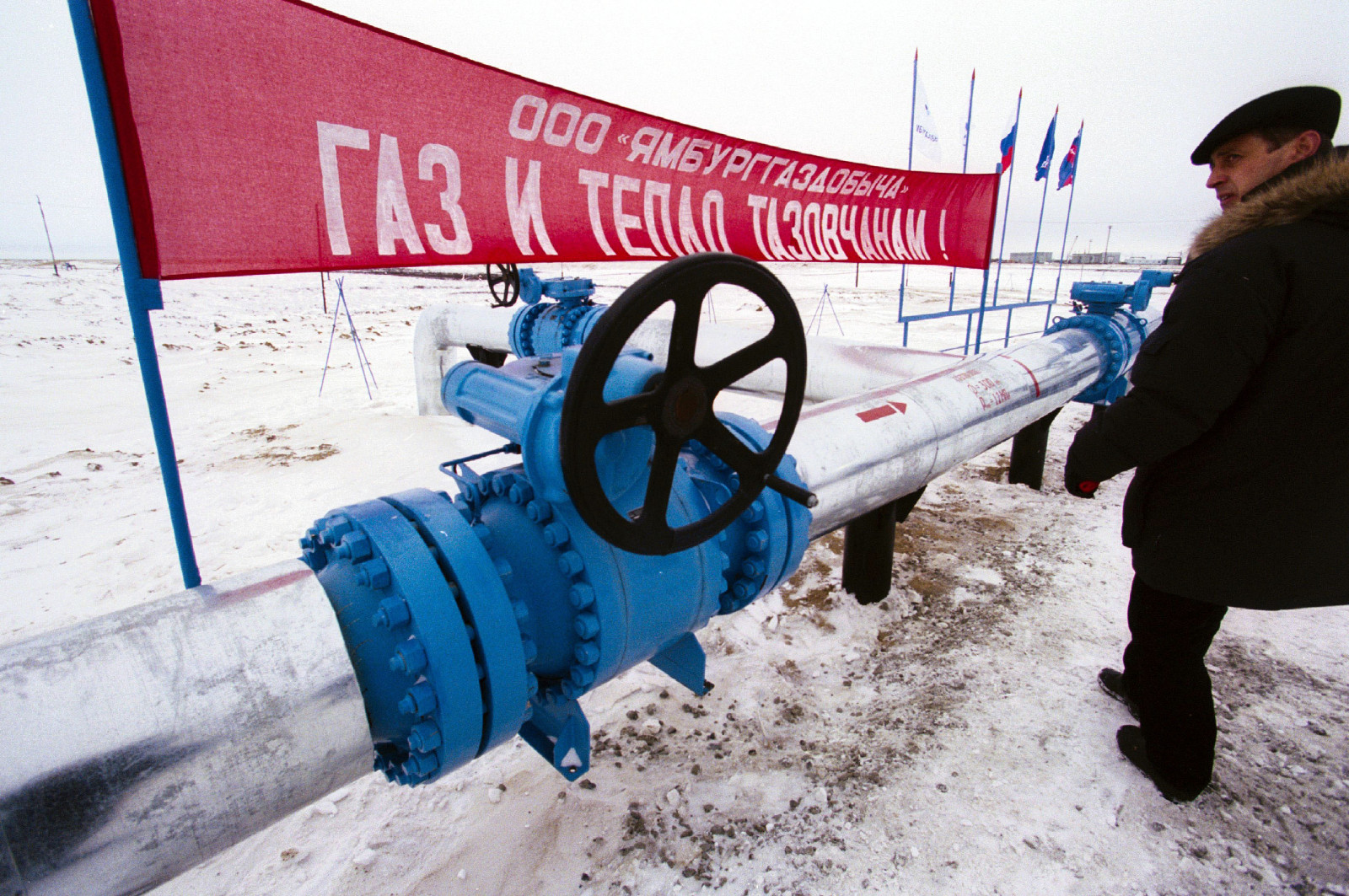
US looks to move ahead with Russia oil ban, undeterred by commodities chaos: US lawmakers from both sides of the aisle are backing a plan to ban imports of Russian oil and sever trade relations with the country, Reuters reports. The framework was authored by Republican and Democratic lawmakers who sit on trade committees in the House and Senate, and could be put up for a vote in the House as soon as Tuesday, a congressional aide told the newswire.
Some European countries aren’t on board with an embargo on Russian energy, but two sources told Reuters that Washington is happy to go it alone and ban Russian oil from its shores. US officials have been in talks with European leaders over a joint ban but European nations are split over whether to sanction Russian oil and gas. Germany yesterday publicly opposed the idea while other nations such as Poland are calling for action, Bloomberg reports.
But it does want to slash imports this year: The bloc wants to cut up to two-thirds of its energy imports from Russia, the EU Commission said yesterday. This seems like a tall order given the continent relies on Russia for 40% of its gas, but a realignment of the continent’s energy strategy could open a space for producers such as Egypt to increase exports.
Russia threatens to suspend key gas pipeline to Europe: The Russian deputy prime minister threatened to cut off gas supplies to Europe delivered through the Nordstream 1 pipeline if Western governments move to reduce purchases from Russia, according to Reuters. Alexander Novak, who also handles energy policy, said that a restriction of Russian supplies could push oil prices to USD 300 a barrel, and warned that Moscow could respond to energy sanctions by shuttering the pipeline.
TALKS HAVE BROKEN DOWN-
A third round of direct talks between the two sides failed to produce a breakthrough yesterday after Ukraine rejected Moscow’s demands, the Washington Post reports. The Kremlin said yesterday that it will stop the bombardment “in a moment” if Ukraine accedes to its demands. Moscow wants Kyiv to enshrine neutrality in its constitution, recognize Crimea as Russian territory, and allow the breakaway states in the east of the country to become independent, spokesperson Dmitry Peskov said, according to Reuters.
Small signs of progress: Negotiators brokered an agreement to establish humanitarian corridors to allow civilians to escape the fighting, and Russia’s UN ambassador announced that it will abide by a ceasefire starting 10am Moscow time, according to the Associated Press.
ON THE GROUND-
Rockets continue to be fired on the north and south of the country, disrupting plans to evacuate civilians via humanitarian corridors, the Wall Street Journal reports. More than 200k citizens in the southeastern city of Mariupo are at grave risk, Human Rights Watch said, and have not had access to running water, electricity, or heat since 2 March, when Russian forces began to besiege the city. Three evacuation attempts were canceled since then due to continued attacks.
Meanwhile outside Kyiv, Russian troops are preparing to seize the capital from the east and west in an operation Institute for the Study of War believes will start in the next few days.
THE HUMAN TOLL- Around 1.7 mn Ukrainians have fled their country so far, according to the UN refugee agency. This is the biggest refugee crisis in Europe since World War II.
PLANET WAR FINANCE-
There’s now an 80% chance that Russia will default on its debt, after credit default swaps on Russian bonds rose to record highs yesterday, Bloomberg reported yesterday, citing ICE Data Services. Ratings agencies Moody’s, Fitch and S&P have all slashed the country’s sovereign rating to “junk” status, after the US imposed sanctions on Russian sovereign debt and its central bank, and banned some of its banks from the SWIFT payments system.
Russia is officially the most sanctioned country on Earth, taking the ignominious prize out of the hands of countries like Iran and North Korea. The country has been slapped with almost 2.8k new sanctions since 22 February, taking the total to more than 5.5k, according to Bloomberg.
EXODUS-
Fitch has become the second western credit rating agency to suspend its operations in Russia, according to Reuters. The firm said that its activities in the country would cease with immediate effect and that its analysts would cover the country from abroad. Moody’s was the first major rating agency to leave the country, announcing an end to its operations at the weekend.
COMMODITIES
Unsubsidized bread in Egypt is getting pricier as Russia’s war roils the wheat markets

The price of unsubsidized bread in the Greater Cairo area has risen by as much as 50% in the course of a week as global wheat prices soar following Russia’s invasion of Ukraine, Bloomberg reports. A pack of five balady loaves can now cost EGP 7.50 in Cairo, up from EGP 5.00 last week, said Khaled Sabri, a member of the bakeries division at the Federation of Egyptian Chambers of Commerce.
Russia’s war in Ukraine has sent global wheat prices spiraling as markets are deprived of supply from the Black Sea region, which accounts for around a quarter of the world’s grain and the bulk of imports to Egypt. As of last week, Egypt was facing prices 37% higher than its forecast in the 2021-2022 budget, a shock that could increase the government’s wheat spend by up to EGP 15 bn this fiscal year.
Bakeries are feeling the strain: Local bakers are “getting a ton of flour for EGP 12.3k versus EGP 9k a week ago, on top of the high price they pay for everything from electricity to fuel,” head of the bakeries division at the Cairo Chamber of Commerce Attia Hamad told Ala Mas’ouleety on Saturday (watch, runtime 10:15).
Where the global price hikes matter most is in their impact on bread subsidies. The majority of our wheat — both local and imported — ends up as subsidized loaves, which are handed out to more than 60 mn Egyptians. The Madbouly government is now considering raising the price of subsidized loaves to cope with the costs and is expected to announce plans to taper its subsidy program at the end of March. While the state will need to find a way to cope with the burden on its coffers, lifting subsidies would come with its own drawbacks — including a likely rise in inflation, Al Ahly Pharos’ head of research Radwa El Swaify said earlier this week.
ANECDOTALLY- Prices of chicken and other staples also seem to be facing some upward pressure. The issue made headlines on last night’s talk shows (below).
M&A WATCH
Qatari dairy firm Baladna acquires 5% of Juhayna + Compass ups share in Rameda

Qatar’s Baladna acquires 5% stake in Juhayna: Qatari dairy firm Baladna has acquired a 5% stake (47.1 mn shares) in leading Egyptian dairy company Juhayna (JUFO) for EGP 285.8 mn, the firm said in a disclosure to the Qatar Stock Exchange. That works out to an average price per share of EGP 6.07. JUFO shares fell 2.7% in trading yesterday to EGP 5.70.
This makes Baladna the company’s third-largest shareholder: Pharon Investment — an offshore vehicle owned by the Thabet family — owns 50.1%, and Rimco Investments holds 10.6%.
A good time to jump in on JUFO. The local dairy firm posted strong growth in its latest earnings release, with its bottom line rising 28% during 9M2021 on the back of a 16% increase in revenues. JUFO is also under new management, having tapped new group CEO Niels Thomsen a few weeks ago. Baladna’s entry comes nearly a year after reports that Abu Dhabi’s sovereign wealth fund was eyeing a stake in the dairy producer, though there has been no news on that front since.
OTHER M&A NEWS- Compass again ups stake in Rameda as part of a block transaction that saw 6.4% of the company’s shares change hands: Rameda Pharma’s largest shareholder, Equinox Pharma, has purchased another 1.8% of the company, raising its stake to 17.5%, Rameda announced in a statement (pdf) yesterday. Equinox is owned by Compass Investment, which acquired 100% of Rameda in 2011 before listing it on the EGX in 2019, and last year upped its stake in the pharma firm by 2.7 points to 15.4%.
Equinox wasn’t the only investor to acquire shares: An unnamed GCC institutional investor and an executive board member of Rameda also bought shares in the company, the statement said. Including Equinox’s purchase, 6.4% of the company (64.3 mn shares) was sold via a block trade worth EGP 128.6 mn, for an average share price of EGP 2.00 per share. Rameda shares closed 7% lower yesterday at EGP 2.00.
On the sell-side: The shares were sold by several pre-IPO investors including Seddik Mohamed Seddik, company spokesperson Yasmine Negm told Enterprise. Rameda announced late last year that Seddik was selling a 5% stake (49 mn shares) in the company to an unnamed foreign institutional investor, on the condition that the investor holds onto the shares for the remainder of Seddik’s post-IPO lock-up period.
What they said: “Just two years after its listing, and with solid year-end results reported by the company in 2021, we believe that Rameda is on track to generate exceptional growth in both the short and long-term,” said Equinox MD (and Compass chief) Shamel Aboul Fadel.
STARTUP WATCH
Logistics startup Naqla raises USD 10.5 mn in pre-series A funding

Trucking startup Naqla has raised USD 10.5 mn in a pre-series A round led by El Sewedy Capital Holding, Hassan Allam Holding and the Sallam family, according to a press release out yesterday.
How the funding will be deployed: Naqla will use the funding to launch new segments including its Naqla Store selling heavy automotive maintenance products to drivers, as well as for driver financing and “scaling our pool of talent and tech product,” co-founder and CEO Sherif Taher told us.
About Naqla: Founded in 2017 by Taher and Samer Sallam, the startup’s B2B logistics platform connects individual truck drivers with cargo companies and offers road assistance, finance, ins., healthcare and maintenance services to the drivers in its network. The startup is now working with over 400 shipping firms and 10.5k drivers nationwide, and has so far helped deliver over 4.6 mn tons of cargo.
The Sallam family are synonymous with consumer goods in Egypt, having founded brands including Btech and Olympic Group. A family vehicle recently invested in real estate developer MNHD.
Egypt-based pharma delivery platform Chefaa has raised an undisclosed sum in a funding round led by South African VC Newtown Partners, Japan-based Global Brain and US investor GMS Capital Partners, a press release out yesterday. The round marks the three VCs’ first investment in the Egyptian market, according to the release.
Chefaa is branching out into ins. services: The startup will use the fund to launch its Chefaa Prime medical ins. alternative, a subscription-based service “designed for emerging markets.” The round will also fund Chefaa’s “efforts to digitize chronic illness management” and help it enter unspecified new markets, the release read.
Background: Founded in 2017, the female-led startup operates an AI-powered platform for buying pharma products, which allows customers to scan their prescriptions, locate their nearest pharmacies and order meds online. Chefaa closed a seven-figure USD pre-series A round in 2020, after raising a six-figure USD sum from Flat6Labs and 500Startups in a 2019 seed round. The pharma delivery platform was among 10 MENA startups to take part in the first iteration of the Google-led three-month digital accelerator program in MENA last year.
EARNINGS WATCH
Housing and Development Bank, Palm Hills report rise in net income
Housing and Development Bank’s (HDB) net income rose 5% in 4Q 2021 to EGP 396 mn, according to the bank’s latest earnings release (pdf). The bank reported net interest income of EGP 818 mn during the quarter, down almost 1% from 4Q 2020.
In 2021: HDB reported EGP 1.8 bn in net income through the year up almost 2% from 2020. This was supported by 17% growth in net interest income, which rose to EGP 3.6 bn on the back of increased gross loans and central bank deposits.
What they said: “With 2021 behind us, HDB can look back on several important achievements. The bank has successfully weathered the uncertainties of recent years and has made remarkable progress in its transition from an institution focused on real estate development and the financing of large projects to a full-fledged commercial bank that is increasingly aligned with the cutting edge of the Egyptian and global markets,” said Chairman Hassan Ghanem.
Palm Hills Developments (PHD) recorded a 16% growth in its bottom line in 2021, driven by a strong increase in new sales, the real estate developer said in its 4Q earnings release (pdf) yesterday. The company reported net income of EGP 824 mn during the year, supported by a 48% increase in revenues which reached EGP 7.7 bn.
In detail: Revenues from new sales grew 35% in 2021 to EGP 17.3 bn, the bulk of which came from the company’s residential developments which brought in EGP 15.3 bn. Growth was strongest in PHD’s North Coast projects, which saw sales increase 70% to EGP 7.1 bn. Developments in West Cairo recorded EGP 7.3 bn in revenues, up 10% from 2020, while East Cairo sales rose 49% to EGP 2.9 bn.
Looking ahead: PHD expects new sales to increase 16% to EGP 20 bn in 2022. The company said it will increase delivered units to more than 2k this year, up from 1.3k in 2021, and it expects to spend EGP 3.4 bn on construction and development.
LAST NIGHT’S TALK SHOWS
The economic drumbeat of war was once again amplified on our airwaves last night. Discussions on the rising prices of meat, poultry and food items took place on Masaa DMC (watch, runtime 5:19) with Supply Ministry official Abdel Moneim Khalil saying that price increases are the result of an “exploitation” of the Ukraine situation by some vendors.
Imported inflation: Economics professor Karim El Omda broke down how a war in Europe will affect the cost of food in our supermarkets in a phone-in with Kelma Akhira’s Lamees El Hadidi (watch, runtime 8:59) who also highlighted the rising prices of oil and gold on her show (watch, runtime 15:24).
Could covid restrictions ease during Ramadan? This could be up to debate if we reach a 70% vaccination rate, Health Ministry spokesperson Hossam Abdel Ghaffar told Kelma Akhira in a phone-in (watch, runtime 11:52), adding that the decision is up to the supreme committee responsible for managing the pandemic. Around 30 mn citizens have been vaccinated so far, he added, which has significantly reduced the number of covid cases across the country.
EGYPT IN THE NEWS
It’s a slow morning in the foreign press as far as Egypt’s concerned — that is, if you ignore the deluge of headlines screaming “wheat crisis.” In non-Ukraine / commodities news, the Washington Post has an opinion piece from Ezzedine C. Fishere on what the ongoing investigation into journalist Ibrahim Eissa says about the contradictory nature of religious discourse in Egypt. Meanwhile, Al Monitor reports that a number of MPs are pushing for people to undergo mandatory psychiatric evaluations before they get married in a bid to stem domestic violence.
ALSO ON OUR RADAR
EBRD to offer more support for SCZone’s digital transformation: The European Bank for Reconstruction and Development (EBRD) signed an agreement on Saturday to extend its assistance for the digitalization of the Suez Canal Economic Zone, the bank said in a statement yesterday. The lender has already completed the first phase of technical support — helping the SCZone deliver seamless, digital investor services, including licenses and permits — with the second phase set to be launched in 1H2022.
The bank signed three other agreements last week during the launch event for the lender’s new 2022-2027 Egypt strategy. The EBRD signed off on the EUR 250 mn loan for the Alexandria metro project, agreed to set up a new initiative aimed at developing skills in Egypt’s tourism sector, and inked an MoU with the electricity and oil ministries to assess Egypt’s hydrogen production potential.
ALSO- Mass transit app Swvl is partnering with fintech startup Paynas to provide its drivers with financial services (pdf) including compensation payouts, buy-now-pay-later options and ins. policies.
PLANET FINANCE
Hedge funds are cashing in as “desperate” SPACs hemorrhage investments: Special purpose acquisition companies are having to turn to hedge funds to help close their mergers as investors pull funds at increasing rates, the Financial Times reports. More regulatory scrutiny, poor performances, and scandals have dimmed investors’ appetite for the unorthodox investment vehicles, leading SPAC managers to look to hedge funds for short-term, loan-like arrangements in a “desperate” bid to fill finance gaps. The hedge funds’ capital is returned to them as soon as the SPAC transaction closes, in an expensive and short term arrangement that leaves newly public companies with depleted coffers. M&A lawyers characterized the transactions as “toxic,” while one SPAC sponsor described hedge funds who engage in the practice as “ambulance chasers.”
From the Gulf:
- Gulf fintech major Tabby raises USD 54 mn round: Emirati buy-now-pay-later provider Tabby has raised USD 54 mn in a funding round led by Sequoia Capital India and Saudi VC firm STV, bringing its total funds raised so far to USD 180 mn, Bloomberg reports. Tabby was once the “most funded” fintech in the region, before MNT-Halan blew past the milestone with a blockbuster USD 120 mn funding round late last year.
- Selling Neom in New York: Execs at the Saudi crown prince’s USD 500 bn city of the future will gauge investment appetite on Wall Street at an April meeting in New York. (Bloomberg)
- Saudi Arabia will greenlight single-stock futures trading in the second quarter of this year, Tadawul Stock Exchange CEO Khalid Al-Hussan told Bloomberg TV. The Saudi bourse will initially choose 10 liquid companies for futures trading, Al-Hussan said, with more to follow depending on investor demand. The move aims to boost liquidity by further liberalizing the exchange and luring foreign investors.
|
|
EGX30 |
10,701 |
-3.6% (YTD: -10.4%) |
|
|
USD (CBE) |
Buy 15.66 |
Sell 15.76 |
|
|
USD at CIB |
Buy 15.66 |
Sell 15.76 |
|
|
Interest rates CBE |
8.25% deposit |
9.25% lending |
|
|
Tadawul |
12,808 |
0.0% (YTD: +13.5%) |
|
|
ADX |
9,672 |
-0.1% (YTD: +14.0%) |
|
|
DFM |
3,419 |
-0.9% (YTD: +7.0%) |
|
|
S&P 500 |
4,201 |
-3.0% (YTD: -11.9%) |
|
|
FTSE 100 |
6,959 |
-0.4% (YTD: -5.8%) |
|
|
Brent crude |
USD 124.40 |
+5.3% |
|
|
Natural gas (Nymex) |
USD 4.83 |
-3.7% |
|
|
Gold |
USD 1,996 |
+1.5% |
|
|
BTC |
USD 38,226 |
-2.3% (as of midnight) |
THE CLOSING BELL-
The EGX30 fell 3.6% at yesterday’s close on turnover of EGP 1.49 bn (36.7% above the 90-day average). Foreign investors were net sellers. The index is down 10.4% YTD.
In the green: Abu Qir Fertilizers (+0.9%), Cleopatra Hospital (+0.9%) and Mopco (+0.5%).
In the red: CIB (-7.2%), Rameda (-7.0%) and MM Group (-6.7%).
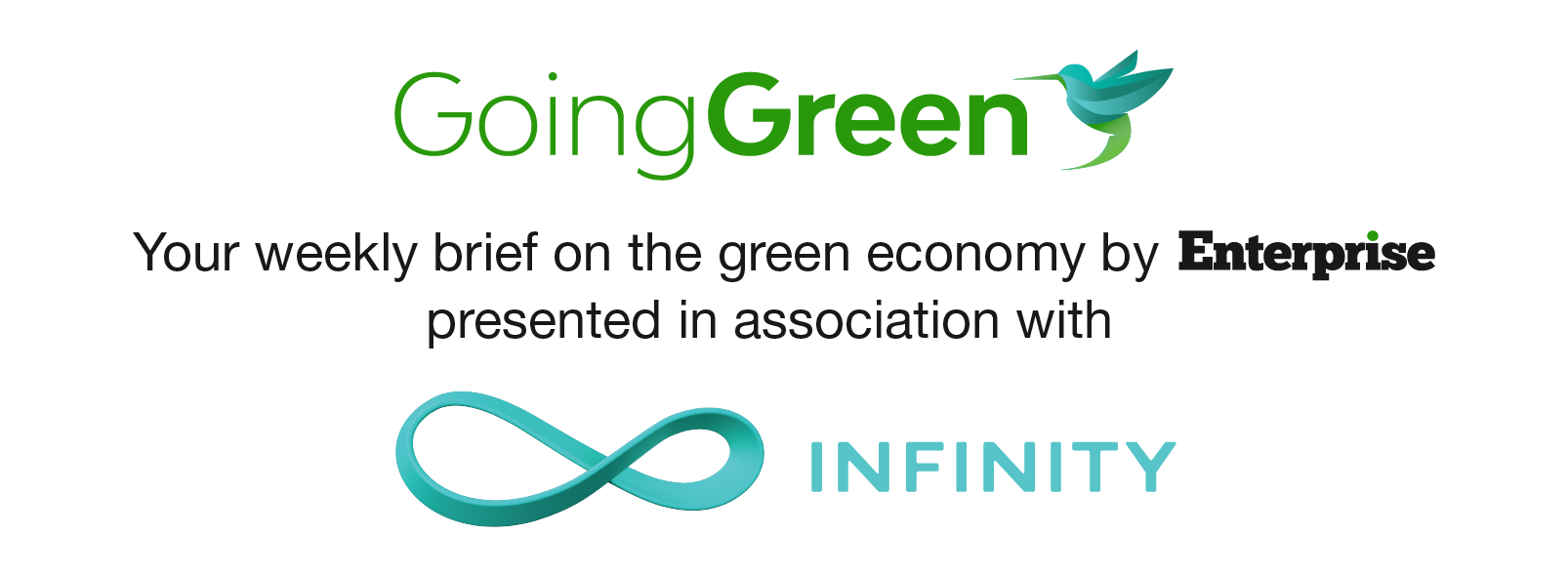

The executive regulations for the Waste Management Act are finally here. The regulations (pdf) set guidelines for the safe disposal of household, commercial, industrial, agricultural, and medical waste, and stipulate how waste disposal will be sustainably financed. The regulations also lay out a package of incentives to motivate private sector and small-scale players to chip in, as part of the drive to formalize waste management through a comprehensive national system.
Why do we need a Waste Management Act? First off, because we create a lot of waste at high expense. Egypt produces 50k-60k tonnes of solid waste per day, totaling 22 mn tonnes annually, at costs some estimate at as high as EGP 480 per tonne, as we reported previously. Solid waste collection fees introduced in 2005 don’t cover more than some 20% of that cost, while stubborn structural problems in the industry — including the lack of a nationwide collection infrastructure and a struggling recycling market — have proved a barrier to private sector participation.
A national strategy under one authority: The law tasks the Waste Management Regulatory Authority (WMRA) with creating and implementing a national strategy for integrated waste management. The exec regs lay out the strategy’s key aims: Limiting the production of waste; converting waste into profitable resources; and encouraging recycling. The strategy should also develop a framework for improving the environmental management of sanitary landfills.
With licensed private providers pitching in: Under the law, anyone managing or importing non-hazardous waste will need a license to do so from the WMRA, which will set the license fee. Applicants must disclose information on their operations, organizational structure and staffing, and equipment, and agree to keep electronic records of their business. Providers must also train workers in best practices. The authority should process applications within a month and the license lasts for a year.
Also under the WMRA’s remit: The authority is pretty much in charge of all things waste. It will advise on any new waste-related policy; approve development studies and projects in the sector; and sign off on waste-related spending in the draft state budget. The WMRA’s board will also approve each governorate’s local waste management plan. This all represents a much-expanded role for the authority, which had previously acted as an intermediary, rather than a policy leader.
The law aims to encourage small players and the private sector to get in on the integrated waste management system with a raft of perks and incentives (pdf). Among these are the promise of financial and technical support from the Medium, Small, and Micro Enterprises Development Agency (MSMEDA) for licensed municipal waste collectors, transporters and recycling companies who haven’t previously received similar perks.
Companies and facilities that voluntarily earmark a percentage of their net income to pay into the waste management system will also get tub-tubs from the Environment Ministry with an annual list of the best among these players, based on the impact of their activities on the environment.
The regs seek to limit single-use plastic bags: The regulations prohibit the sale, trade, or distribution of single-use plastic bags unless they comply with certain specifications, such as those issued by the Egyptian Organization for Standardization and Quality, including increasing their thickness to reduce their chances of being carried by the wind. Even then, retailers and producers are prohibited from distributing plastic bags without charge except with written permission from the WMRA. Medium and large outlets are also required to start using multi-use shopping bags and promote their use to customers.
Critically, there are financial incentives to support the alternatives: The Finance Ministry will offer incentives including tax and customs exemptions to encourage the import, production and manufacturing of safe, environmentally friendly alternatives to single-use plastic bags. These apply to projects recycling plastic bags or facilities manufacturing biodegradable plastic bags.
Producers will also get branding incentives to reduce waste: The WMRA and the Trade Ministry will grant “green label” certificates to manufacturers who make low-waste or recyclable products to motivate manufacturers to increase their recyclable inputs and reduce the generation of industrial waste. The green label will be awarded to products that are made without causing harm to human health or the environment, that rationalize water and electricity use in the manufacturing process, and that are packaged sustainably.
On municipal waste: The regs task authorities (whether that is NUCA or local governorate authorities) with putting an end to unlicensed landfills and waste dumps within two years of the Waste Management Act coming into effect. Under the rules, the authorities are responsible for everything from putting a plan for these dumps’ closure to safely disposing of their waste.The New Urban Communities Authority (NUCA) will finance municipal waste management in new cities.The regs also include specs on where intermediate waste processing facilities should be located.
Toxic and hazardous waste: A technical committee manned by representatives from various authorities and ministries will create a list of the kinds of waste deemed toxic or hazardous, and lay out rules for its management. Companies working in toxic waste management must open a comprehensive ins. policy with a licensed ins. provider, with a value equal to at least 50% of their activity.
No more waste-filled construction sites? The WMRA will implement a new system for the collection, transportation and disposal of construction and demolition waste through licensed firms, including by working to provide treatment sites. Authorities including the Local Development Ministry, individual governorates, and NUCA will work in tandem to designate landfill and recycling sites for construction waste.
The rules for construction firms: Companies have 20 days after wrapping up a construction project to safely dispose of any waste on the site, for which they will bear the costs. They must contract with a licensed company to provide containers to collect the waste, which needs to be safely stored to prevent it polluting the surrounding environment. Hazardous waste needs to be separated from the rest. Firms who don’t comply with the new rules won’t be able to get their new buildings hooked up to utilities until their waste has been safely disposed of.
Industrial waste management will fall under the purview of the Trade Ministry, which will form a committee to set standards for and oversee its safe disposal or recycling.
Agricultural and medical waste: Animal and plant waste must be reused, treated, or given or sold to recycling companies, rather than left to rot in fields following the harvest or illegally dumped. The Health Ministry is set to introduce a system to sterilize and bury medical waste. Medical waste should be brought back to the supplier or factory of origin, if the expiration is yet to pass.
What’s next? Establishments have a year from when the regs were published to bring their waste disposal practices in line with the new rules.
Your top climate stories for the week:
- EBRD to assess national green hydrogen strategy: The European Bank for Reconstruction and Development (EBRD) signed an MoU with the electricity and oil ministries to assess the technical, economic, and regulatory feasibility of creating a “low carbon hydrogen economy in Egypt.”
- COP27’s Dutch delegation will move around Sharm El Sheikh on bicycles.
CALENDAR
1Q2022: Launch of the Egyptian Commodities Exchange.
1Q2022: Swvl acquisition of Viapool expected to close.
1Q2022: Waste collection startup Bekia plans to expand to the UAE and Saudi Arabia.
1Q2022: Rameda Pharma will begin selling its generic version of Merck’s oral antiviral covid-19 med.
1Q2022: Pharos Energy’s sale of a 55% stake in El Fayum, Beni Suef concessions to IPR Energy Group subsidiary IPR Lake Qarun expected to close.
Early 2022: Results to be announced for the second round of the state’s gold and precious metals auction.
1H2022: Target date for IDH to close its acquisition of 50% of Islamabad Diagnostic Center.
1H2022: e-Finance’s digital healthcare service platform, eHealth, will launch its services.
1H2022: The government will respond to private companies’ bids to build desalination plants.
1H2022: Egypt’s second corporate green bond issuance expected to be announced.
1H2022: The Transport Ministry to sign a memorandum of understanding with Abu Dhabi Ports to set up a transport route across the Nile to transport products from Al Canal’s Minya sugar factory.
March: Rollout of the government financial management information system (GFMIS), a suite of electronic tools to automate the government’s financial management processes (pdf) that will
replace the existing “closed” financial management system.
March: Contracts for last two phases of Egypt’s USD 4.5 bn high-speed rail line to be signed.
March: 4Q2021 earnings season.
March: Deadline for the World Health Organization’s intergovernmental negotiating body to meet to discuss binding treaty on future pandemic cooperation.
March: World Cup playoffs.
March: The government hopes to sign a final contract between El Nasr Automotive and a new partner for the local production of electric cars.
March: Target date for Saudi tech firm Brmaja to IPO on the EGX.
March: Egypt to host World Tourism Organization Middle East committee meeting.
March: The Salam – new administrative capital – 10th of Ramadan Light Rail Train (LRT) line will start operating.
March: The new multi-purpose station at Dekheila Port and the revamped Ain Sokhna Port will start operating.
March: General Authority for Land and Dry Ports to issue the condition booklets for the operations of the Tenth of Ramadan dry port.
9-18 March (Wednesday-Friday): The 55th edition of the Cairo International Fair.
15 March: The first edition of Export Smart at Royal Maxim Palace Kempinski
15-16 March (Tuesday-Wednesday): Federal Reserve interest rate meeting.
20 March (Sunday): Applications close for Visa’s global startup competition, the Visa Everywhere Initiative.
24 March (Thursday): Central Bank of Egypt’s Monetary Policy Committee meeting.
24 March (Thursday): GB Auto Extraordinary General Assembly (pdf).
24 March-1 April: Ahlan Ramadan Supermarket Expo, Cairo International Convention Center.
25 March (Friday): Egypt will host Senegal in the first leg of their 2022 FIFA World Cup qualifiers’ playoff (TBC).
26 March (Saturday): Egypt-EU World Trade Organization dispute settlement consultations end.
28-29 March (Monday-Tuesday): The Egypt International Mining Show (EIMS 2022) will take place virtually.
28 March (Monday): The second leg of the 2022 FIFA World Cup qualifiers’ playoff between Egypt and Senegal (TBC).
28 March (Monday): The court hearing for a case brought by Arabia Investments Holding (AIH) against Peugeot has been postponed until 28 March.
31 March (Thursday): Deadline for submitting tax returns for individual taxpayers.
31 March (Thursday): Vodacom purchase of Vodafone Group’s stake in Vodafone Egypt expected to be completed by this date.
31 March (Thursday): Supply Ministry expected to take final decision on bread subsidies by this date.
April: Fuel pricing committee meets to decide quarterly fuel prices.
April: Ghazl El Mahalla shares will begin trading on the EGX.
2 April (Saturday): First day of Ramadan (TBC).
3 April (Sunday): Bidding begins on the Industrial Development Authority’s license to manufacture tobacco products.
4 April (Monday): CDC Group will formally change its name to British International Investment.
14 April (Thursday): European Central Bank monetary policy meeting.
Mid-April: Trading on the Egyptian Commodity Exchange to start.
22-24 April (Friday-Sunday): World Bank-IMF spring meeting, Washington D.C.
24 April (Sunday): Coptic Easter Sunday (holiday for Coptic Christians).
25 April (Monday): Sham El Nessim.
25 April (Monday): Sinai Liberation Day.
28 April (Thursday): National Holiday in observance of Sham El Nessim.
30 April (Saturday): Deadline for submitting corporate tax returns for companies whose financial year ends 31 December.
Late April – 15 May: 1Q2022 earnings season
May: Investment in Logistics Conference, Cairo, Egypt.
1 May (Sunday): Labor Day.
3-4 May (Tuesday-Wednesday): Federal Reserve interest rate meeting.
4 May (Wednesday): 3 February (Thursday): Deadline to send in applications for Cultural Property Agreement Implementation projects to the US Embassy in Cairo.
5 May (Thursday): National Holiday in observance of Labor Day.
2 May (Monday): Eid El Fitr (TBC).
19 May (Thursday): Central Bank of Egypt’s Monetary Policy Committee meeting.
5-7 June (Sunday-Tuesday): Africa Health ExCon, Al Manara International Conference Center, Egypt International Exhibitions Center, and the St. Regis Almasa Hotel, New Administrative Capital.
9 June (Thursday): European Central Bank monetary policy meeting.
14-15 June (Tuesday-Wednesday): Federal Reserve interest rate meeting.
15-18 June (Wednesday-Saturday): St. Petersburg International Economic Forum (SPIEF), St. Petersburg.
16 June (Thursday): End of 2021-2022 academic year for public schools.
23 June (Thursday): Central Bank of Egypt’s Monetary Policy Committee meeting.
27 June-3 July (Monday-Sunday): World University Squash Championships, New Giza.
30 June (Thursday): June 30 Revolution Day, national holiday.
End of 2Q2022: The Financial Regulatory Authority’s new Ins. Act should be approved.
End of 1H2022: Emirati industrial company M Glory Holding and the Military Production Ministry will begin the mass production of dual fuel pickup trucks that can run on natural gas.
2H2022: The inauguration of the Grand Egyptian Museum.
2H2022: IEF-IGU Ministerial Gas Forum, Egypt. Date + location TBA.
2H2022: The government will have vaccinated 70% of the population.
3Q2022: Ayady’s consumer financing arm, The Egyptian Company for Consumer Finance Services, to release first financing product.
July: A law governing ins. for seasonal contractors will come into effect.
July: Fuel pricing committee meets to decide quarterly fuel prices.
1 July (Friday): FY 2022-2023 begins.
8 July (Friday): Arafat Day.
9-13 July (Saturday-Wednesday): Eid Al Adha, national holiday.
21 July (Thursday): European Central Bank monetary policy meeting.
26-27 July (Tuesday-Wednesday): Federal Reserve interest rate meeting.
30 July (Saturday): Islamic New Year.
Late July – 14 August: 2Q2022 earnings season.
August: Work to extend the capacity of the Egypt-Sudan electricity interconnection to 300 MW to be completed.
18 August (Thursday): Central Bank of Egypt’s Monetary Policy Committee meeting.
September: Egypt will display its first naval exhibition with the title Naval Power.
September: Central Bank of Egypt’s Innovation and Financial Technology Center to launch incubator for 25 fintech startups.
8 September (Thursday): European Central Bank monetary policy meeting.
20-21 September (Tuesday-Wednesday): Federal Reserve Finterest rate meeting.
22 September (Thursday): Central Bank of Egypt’s Monetary Policy Committee meeting.
October: World Bank and IMF annual meetings in Washington, DC
October: Fuel pricing committee meets to decide quarterly fuel prices.
6 October (Thursday): Armed Forces Day, national holiday.
8 October (Saturday): Prophet Muhammad’s birthday, national holiday.
18-20 October(Tuesday-Thursday): Mediterranean Offshore Conference, Alexandria, Egypt.
27 October (Thursday): European Central Bank monetary policy meeting.
Late October – 14 November: 3Q2022 earnings season.
November: Cairo Water Week 2022.
1-2 November (Tuesday-Wednesday): Federal Reserve interest rate meeting.
3 November (Thursday): Central Bank of Egypt’s Monetary Policy Committee meeting.
7-18 November (Monday-Friday): Egypt will host COP27 in Sharm El Sheikh.
21 November-18 December (Monday-Sunday): 2022 Fifa World Cup, Qatar.
13-14 December (Tuesday-Wednesday): Federal Reserve interest rate meeting.
15 December (Thursday): European Central Bank monetary policy meeting.
22 December (Thursday): Central Bank of Egypt’s Monetary Policy Committee meeting.
End of 2022: e-Aswaaq’s tourism platform will complete the roll out of its ticketing and online booking portal across Egypt.
January 2023: EGX-listed companies and non-bank lenders will submit ESG reports for the first time.
January: Fuel pricing committee meets to decide quarterly fuel prices.
**Note to readers: Some national holidays may appear twice above. Since 2020, Egypt has observed most mid-week holidays on Thursdays regardless of the day on which they fall and may also move those days to Sundays. We distinguish above between the actual holiday and its observance.
Enterprise is a daily publication of Enterprise Ventures LLC, an Egyptian limited liability company (commercial register 83594), and a subsidiary of Inktank Communications. Summaries are intended for guidance only and are provided on an as-is basis; kindly refer to the source article in its original language prior to undertaking any action. Neither Enterprise Ventures nor its staff assume any responsibility or liability for the accuracy of the information contained in this publication, whether in the form of summaries or analysis. © 2022 Enterprise Ventures LLC.
Enterprise is available without charge thanks to the generous support of HSBC Egypt (tax ID: 204-901-715), the leading corporate and retail lender in Egypt; EFG Hermes (tax ID: 200-178-385), the leading financial services corporation in frontier emerging markets; SODIC (tax ID: 212-168-002), a leading Egyptian real estate developer; SomaBay (tax ID: 204-903-300), our Red Sea holiday partner; Infinity (tax ID: 474-939-359), the ultimate way to power cities, industries, and homes directly from nature right here in Egypt; CIRA (tax ID: 200-069-608), the leading providers of K-12 and higher level education in Egypt; Orascom Construction (tax ID: 229-988-806), the leading construction and engineering company building infrastructure in Egypt and abroad; Moharram & Partners (tax ID: 616-112-459), the leading public policy and government affairs partner; Palm Hills Developments (tax ID: 432-737-014), a leading developer of commercial and residential properties; Mashreq (tax ID: 204-898-862), the MENA region’s leading homegrown personal and digital bank; Industrial Development Group (IDG) (tax ID:266-965-253), the leading builder of industrial parks in Egypt; Hassan Allam Properties (tax ID: 553-096-567), one of Egypt’s most prominent and leading builders; and Saleh, Barsoum & Abdel Aziz (tax ID: 220-002-827), the leading audit, tax and accounting firm in Egypt.

